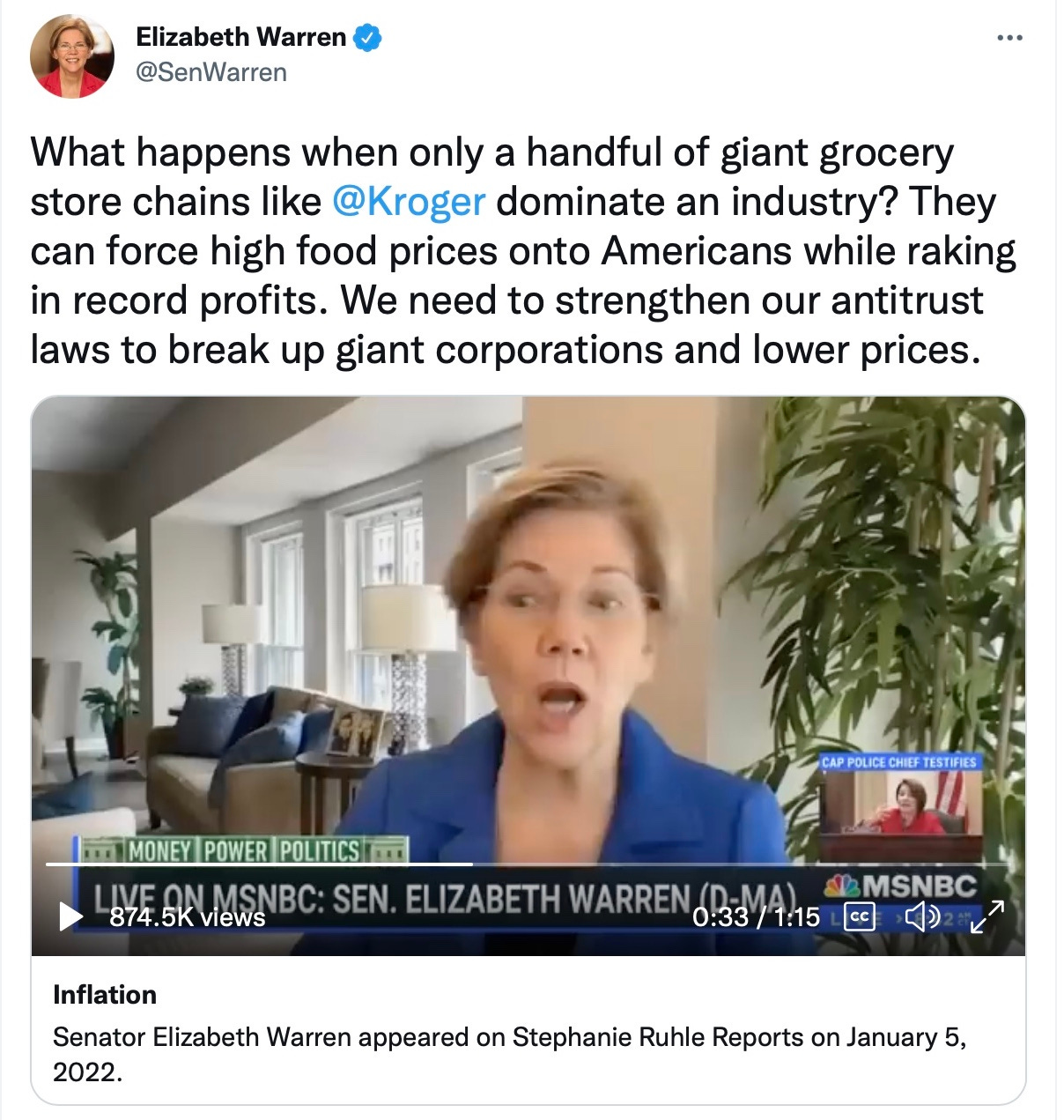One-Trick Ponies
Elizabeth Warren, who's coalesced her demagogic screedery around a seething-hot hatred of any form of private-sector success, recently attempted to sledgehammer a square peg into a round hole by declaring that the high prices Americans are seeing at the grocery store are...
Wait for it...
Not the massive expansion of the money supply.
Not the supply chain disruptions (that the President, a member of her party, won't remediate, because it'd require crossing unions).
Not the Omicron spike.
Not even the weather.
We're paying more because retail grocery is an oligopoly.
That, of course, needs to be broken up. By the government. So that (HAHAHAHA) market forces can start working again.
This particular attack brings to mind an observation attributed to Ted Frank.
Selling at a price higher than a competitor = price gouging.
Selling at a price lower than a competitor = predatory pricing.
Selling at a price the same as a competitor = collusion.
All of these, of course, require immediate government intervention.
Warren is a classic example of a tradesman with only one tool in her toolbox. When all you have is a hammer, everything looks like a nail. Warren's hammer is government, her nail is anyone who makes a profit or accumulates some wealth.
Politicians, like anyone selling something, develop brands, reputations, labels, and default angles, and in doing so build a core of loyalists. This core has its own gravity, luring politicians into playing to them, even when it doesn't actually make sense. Since Warren has established herself as the mighty government crusader against "excess" success (she and hers won't put it that way of course), she works her angle into whatever the hot-topic issue of the moment happens to be. To get microphone time, eyeballs, and clicks more that to actually fix a problem.
As Reason’s Joe Lancaster points out, retail grocery is a notoriously low-margin business, with an industry-wide net profit margin barely more than one percent. This makes Warren's target puzzling... if you think that facts matter.
In politics, they rarely do, and almost never when they stand in the way of a narrative.




